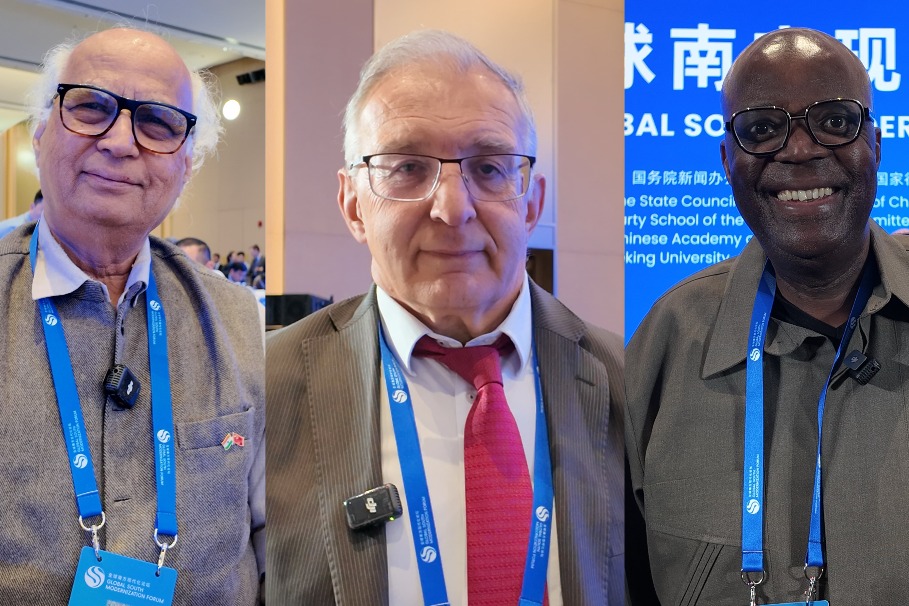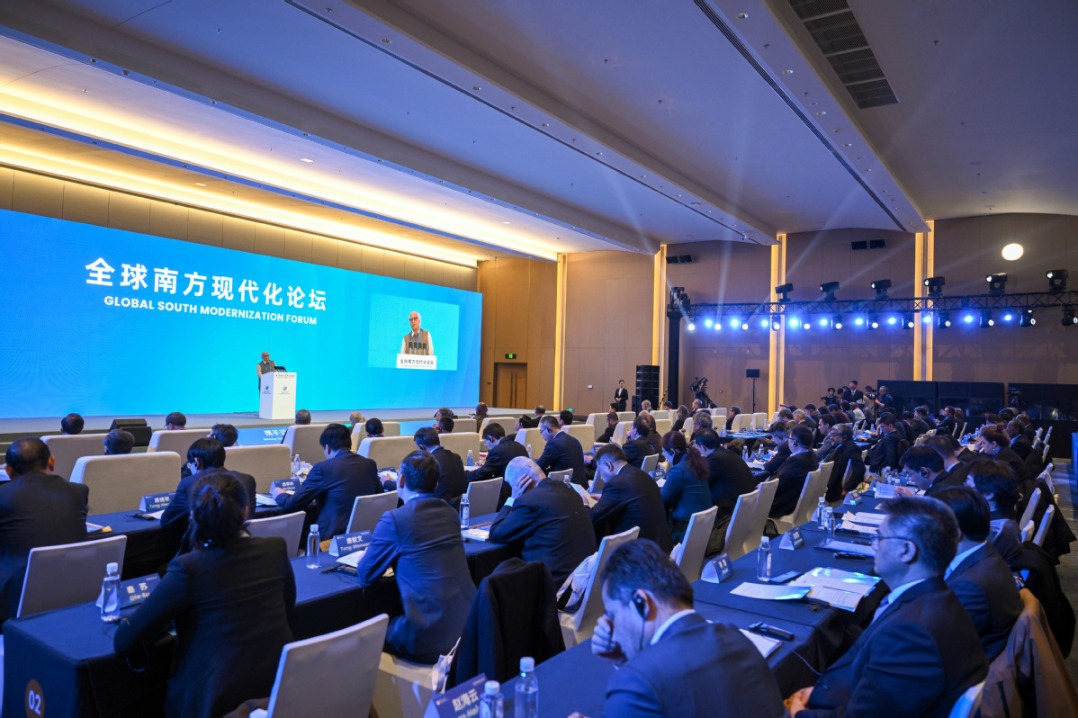Two acronyms in education will mean a lot in days to come

Ever wondered what STEM and STEAM stand for? For the uninitiated, STEM(science, technology, engineering, mathematics) and STEAM(which includes the arts) describe an educational curriculum that is gaining popularity by the day because of the advent of technologies-such as artificial intelligence, the internet of things and augmented and virtual reality-and the concurrent rise in demand for technical talent.
Nowhere is this more pronounced than in China.
But it is not yet party time.
According to a recent white paper on STEM education, there are only 11 scientists and engineers, on average, for every 10,000 people in the nation's workforce.
"Lack of innovative and highly skilled talent has become a major bottleneck for economic transformation," said Wang Su, director of the National Institute of Education Sciences' Center for STEM Education under the in a recent article.
Last week in Beijing, I chanced to meet Omar Farooqui, a Saudi national, who is the founder and president of Coded Minds, a global alternative education company in the United Arab Emirates.
Farooqui was representing his region at an educational technology conference in the city.
At first glance, it would be easy to dismiss Coded Minds as one of the zillion startups focused on tech education.
But Farooqui's vision goes beyond that. He aims to disrupt the education industry from the ground up, not just through pedagogy but also through a vision that merges public and private education.
According to Farooqui, schools are out of reach for hundreds of millions of children, mainly on account of both real and hidden costs associated with enrollment. Even government schools that are supposedly free of charge for things such as books, stationery and uniforms, placing an additional burden on parents. In many cases, this becomes a formidable challenge, keen as they are on imparting quality education to their children.
"I believe if parents know they are truly paying for quality education-which can only come from a sustainable business model-they will go out of their way to make room for their child's education by whatever means. I also feel as a result that there should be an eradication of the distinction between private and public education. There should just be education at a price point that is neither free nor over the top as private education is nowadays," Farooqui said.
Technology is only a steppingstone or a means to an end, not the end goal, he said. Therefore it should be used as such.
Farooqui, who calls himself an entrepreneur, investor and startup enthusiast, had a checkered career in the finance sector before he decided to tread the venture capital path.
But education is something that he believes in, and he is therefore always on the lookout for innovative solutions.
He admitted that he has been fascinated by China's efforts in the education sector.
"China is a global market by itself, in scale. We feel China is going through a world-leading technological boom, so if China marries its EdTech market with content from outside, and tweaks it to serve the local population, it will have a winning formula that can be exported to the masses. And that is precisely what we are looking to gain here," he said.
"The societal norms of China are akin to those of the Middle East in many ways, where relationships once forged are for the long haul. I admire the entrepreneurial spirit of the young people in China, as there seems to be a positive mindset when it comes to the early adoption of technology in various aspects of society. I believe Mandarin will continue to be one of the world's most in-demand languages, just as China is becoming the leading economy in the world."
Farooqui believes that a three-pronged approach to education is necessary globally, and that the growing debate over public vs private education should end. Education is education, and it needs a sustainable business model, he said. Government funding, rather than being channeled toward public/government schools, should go toward research and development of education, while the schooling aspect should be an impact-driven business focused on a school's greatest and most important stakeholder… the child.
Second, all the real estate aspects of schools, such as buildings, should be completely delinked by law from the main business of education.
Last but not least, all board examinations must be scrapped once and for all so that schools can actually teach every child to learn to prepare for life and not prepare for tests and exams primarily through memorization.
"Such steps will enable innovation in education," he said.

Today's Top News
- 15th National Games embodiment of high-quality development
- Lawmakers' thousands of proposals receive responses
- China warns Japan against interference
- Nation's euro bond sale shows investors' confidence
- No soft landing for Tokyo's hard line
- Commerce minister urges US to increase areas of cooperation






























